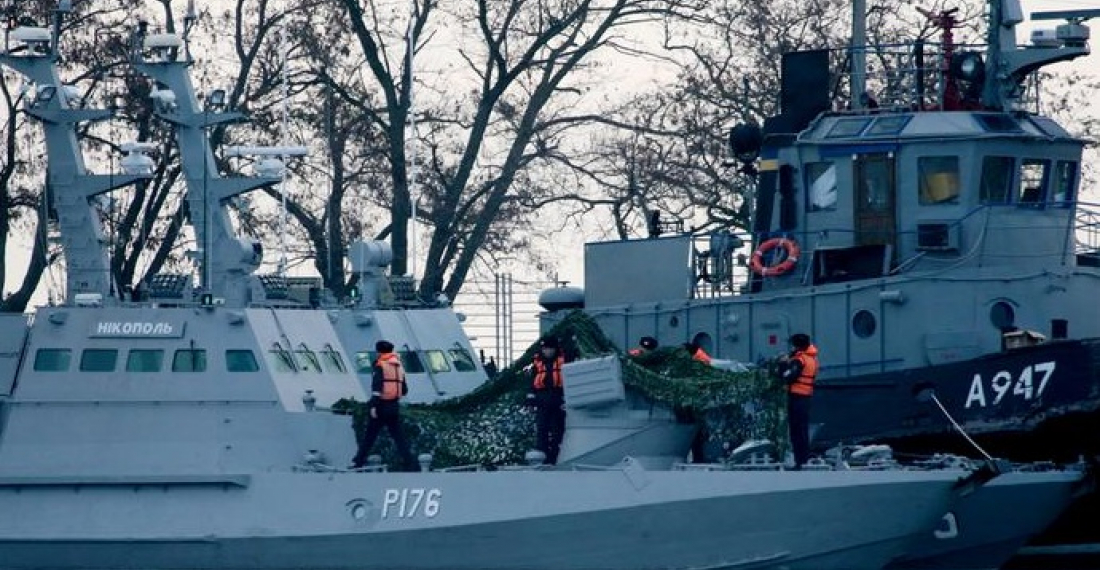Germany and France have demanded "the immediate and unconditional release" of 24 Ukrainian sailors detained by Russia.
The capture of Ukrainian sailors in the Kerch Strait is "illegal," German Chancellor Angela Merkel and French President Emmanuel Macron said in a joint statement on Friday. The two leaders also slammed Russia's "abusive" naval controls in the Sea of Azov after its navy seized three Ukrainian vessels in the disputed waters off Crimea last month.
"We demand safe, free and unimpeded transit for all ships through the Kerch Strait and the immediate and unconditional release of all illegally detained Ukrainian seafarers," Merkel and Macron said.
"They too should be able to celebrate the upcoming festivities with their families," the leaders of France and Germany said, referring to the New Year celebrations and Christmas, which is marked on January 7 in Ukraine and Russia.
In their Friday statement, Macron and Merkel welcomed a ceasefire deal, saying it would give a chance to both sides to "focus on the needs of the civilian population." The duo also called for establishing a secure area to allow for delivery of aid, saying that civilians had "already suffered much too long from the conflict and its consequences."
Merkel later reiterated the demand to free the sailors in a telephone call to Russian President Vladimir Putin. German government spokeswoman Ulrike Demmer on December 28 said the situation in Ukraine was one of two conflicts discussed by Merkel and Putin in the telephone conversation with the two leaders also addressing the situation Syria in the wake of the U.S. decision to withdraw its troops from the war-torn country and ahead of important talks between Russia and Turkey over the weekend.
Russia seized Crimea from Ukraine in 2014 and subsequently imposed controls for vessels navigating the Kerch Strait, a narrow passage linking the Sea of Azov and the Black Sea near the disputed peninsula.Ukraine, however, still views Crimea as its own territory and claims the right to deploy ships in the area based on a 2003 deal with then-friendly Moscow.
On Friday, Ukrainian Defense Minister Stepan Poltorak said that Ukraine would continue to use the Kerch Strait for navigation. "This will always be so, because the Sea of Azov is a part of Ukraine," Poltorak said, according to the defense ministry's website. "We will definitely not give up our right of free navigation through the Kerch Strait in accordance of all international rules and laws," he added.
source: commonspace.eu with Deutche Welle (Cologne) and agencies
photo: In November Russia boats intercepted Ukrainian ships and tugged them to the Crimean port of Kerch where the Ukrainian sailors were arrested. (archive picture)






